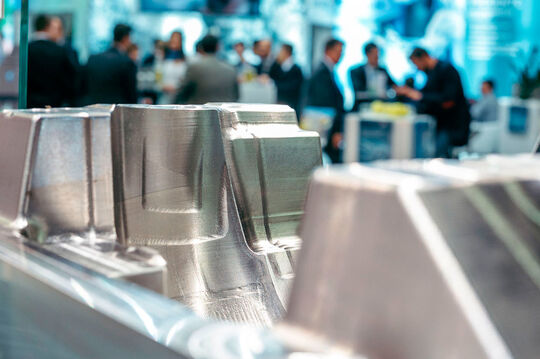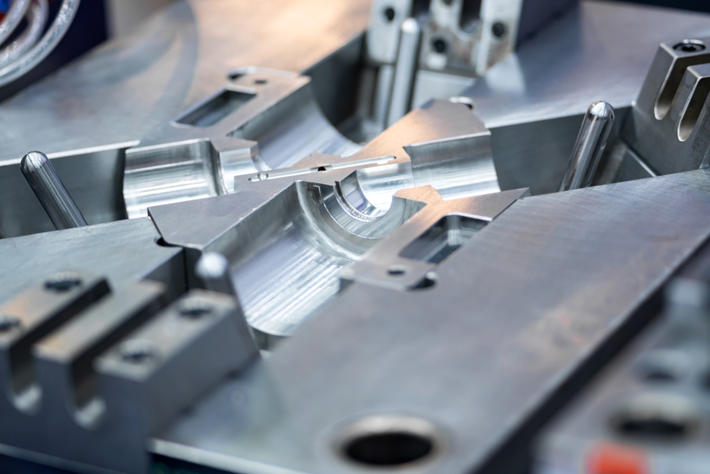Aluminum casting molds are essential tools in the manufacturing industry, enabling the production of a wide range of products through the casting process. Aluminum casting molds are highly versatile and are widely used in various industries, including automotive, aerospace, electronics, and consumer goods. This article will discuss the versatility of aluminum casting molds and their applications in different industries.
Versatility of Aluminum Casting Molds
Wide Variety of Shapes and Sizes
Aluminum casting molds can be designed in various shapes and sizes to accommodate the production of different products. From small and intricate components to large and complex structures, aluminum casting molds can be customized to meet specific manufacturing requirements. This versatility allows manufacturers to produce a diverse range of products using the same casting process.
Complex Designs and Intricate Details
Aluminum casting molds are capable of producing products with complex designs and intricate details. The mold design can be tailored to include intricate features such as undercuts, fine textures, and intricate patterns. This versatility enables the production of highly detailed and aesthetically pleasing products, making aluminum casting molds suitable for applications in industries like art and design.
High Dimensional Accuracy
Aluminum casting molds can achieve high dimensional accuracy, ensuring the consistency and precision of the cast products. The mold design and manufacturing process can be optimized to minimize dimensional variations and maintain tight tolerances. This versatility is crucial in industries where precise measurements and tight specifications are required, such as automotive and aerospace.
Rapid Prototyping and Short Production Lead Times
Aluminum casting molds offer rapid prototyping capabilities, allowing manufacturers to quickly create prototypes for product evaluation and testing. The versatility of aluminum casting molds enables the production of prototypes that closely resemble the final product, facilitating product development and reducing time to market. Additionally, aluminum casting molds can be produced and used for short production runs, providing a cost-effective solution for small-scale production.
Applications of Aluminum Casting Molds
Automotive Industry
Aluminum casting molds find extensive applications in the automotive industry. They are used to produce various components such as engine blocks, cylinder heads, intake manifolds, and transmission cases. The versatility of aluminum casting molds allows for the production of lightweight and high-strength parts, contributing to improved fuel efficiency and performance in automobiles.
Aerospace Industry
Aluminum casting molds play a vital role in the aerospace industry, where lightweight and durable components are crucial. They are used to produce parts like aircraft engine components, structural components, and landing gear parts. The versatility of aluminum casting molds enables the production of complex and lightweight parts, contributing to the overall weight reduction of aircraft and enhancing fuel efficiency.
Electronics Industry
Aluminum casting molds are also widely used in the electronics industry for the production of heat sinks, enclosures, and connectors. The versatility of aluminum casting molds allows for the production of highly thermally conductive components with intricate designs, ensuring efficient heat dissipation in electronic devices. Additionally, the lightweight nature of aluminum makes it an ideal choice for electronic products.
Consumer Goods Industry
Aluminum casting molds are employed in the consumer goods industry for manufacturing products like kitchen utensils, decorative items, and furniture components. The versatility of aluminum casting molds enables the production of aesthetically pleasing and lightweight products, making them highly sought after in the consumer goods market.
Conclusion
Aluminum casting molds offer immense versatility in terms of shape, size, design complexity, dimensional accuracy, and production lead times. Their applications span across various industries, including automotive, aerospace, electronics, and consumer goods. The ability to produce a wide range of products with high precision and efficiency makes aluminum casting molds a valuable tool in the manufacturing industry.
-

- OEM die casting components for automotive Seat frame
-

- Dijelovi i komponente za livenje pod pritiskom po narudžbi za viljuške ovjesa bicikla za MTB
-

- Mangensium alloy die-casting Thixomolding helmet
-

- Dijelovi za livenje pod pritiskom od legure magnezija Poklopac lanca za automobile
-

- Magnesium alloy die-casting auto parts center control cover
-

- Dijelovi i komponente za livenje pod pritiskom od legure magnezija za e-bicikle

 0086-750-5616188
0086-750-5616188 +86 13392089688
+86 13392089688 sales@zhongmei-tech.com
sales@zhongmei-tech.com









